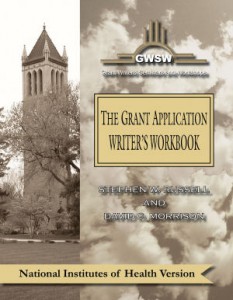Why was my outstanding grant application so intensely disliked by the reviewer panel? Although this is certainly a reasonable question for any failed applicant to ask, at least initially, in the vast majority (but unfortunately, not 100%) of cases, the answer is usually not too difficult to surmise. In our experience, assuming that critiques of proposals or summaries of review panel deliberations are available, a careful, neutral and dispassionate consideration of the comments provided will almost always provide pretty good insight that one or more of the following 30 reasons will be identified:
1. Lack of commitment by applicant (insufficient time allocated)
2. Applicant failure to follow instructions
3. Applicant use of outdated application format/instructions
4. Ideas proposed not relevant to funding agency mission
5. Little or no programmatic relevance because of…
6. Applicant failure to communicate with agency program officer
7. Applicant failure to convince reviewers of the need for the proposed work
8. Applicant failure to provide strong rationale for the project
9. Applicant failure to demonstrate adequate knowledge of published literature
10. Lack of essential applicant experience
11. Proposal “padded” by inclusion of non-essential personnel
12. Missing evidence that environment is conducive to successful completion of the work
13. Unrealistic amount of work proposed
14. Methods proposed not appropriate for questions asked
15. Missing or inappropriate statistical considerations
16. Diffuse, superficial, or unorganized proposal
17. Uncertain outcomes and/or future directions
18. Applicant failure to consider potential problems/alternative strategies
19. Interdependence of aims/goals
20. Some aims irrelevant to testing hypothesis or achievement of overall objective
21. Ideas too complicated to easily understand
22. Applicant failure to consider perspectives/sensitivities of reviewers
23. Too much detail/too many variables
24. Reader-unfriendly application
25. Application written to make applicant happy (but not reviewers)
26. Applicant failure to address all agency review criteria
27. Unrealistic budget proposed
28. Lack of adequate budget justification
29. Misinterpretation of deadline for application
30. Failure to get critical review from colleagues prior to submission!
If you’re a reader of this blog and you’ve experienced proposal rejections, and would be willing to (anonymously) share the key reasons from the above list, we would love to hear from you. If we receive a sufficient number of responses, we will discuss the most common reasons identified by readers, in future blogs, along with our detailed suggestions on how to avoid them. In the meantime, in the absence of such postings, readers will still be faced with answering the question: “How do I avoid making these common mistakes?” The simplest answer to this question would be to read and precisely follow the detailed instructions and guidelines available in each of our versions of The Grant Application Writers’ Workbook.

